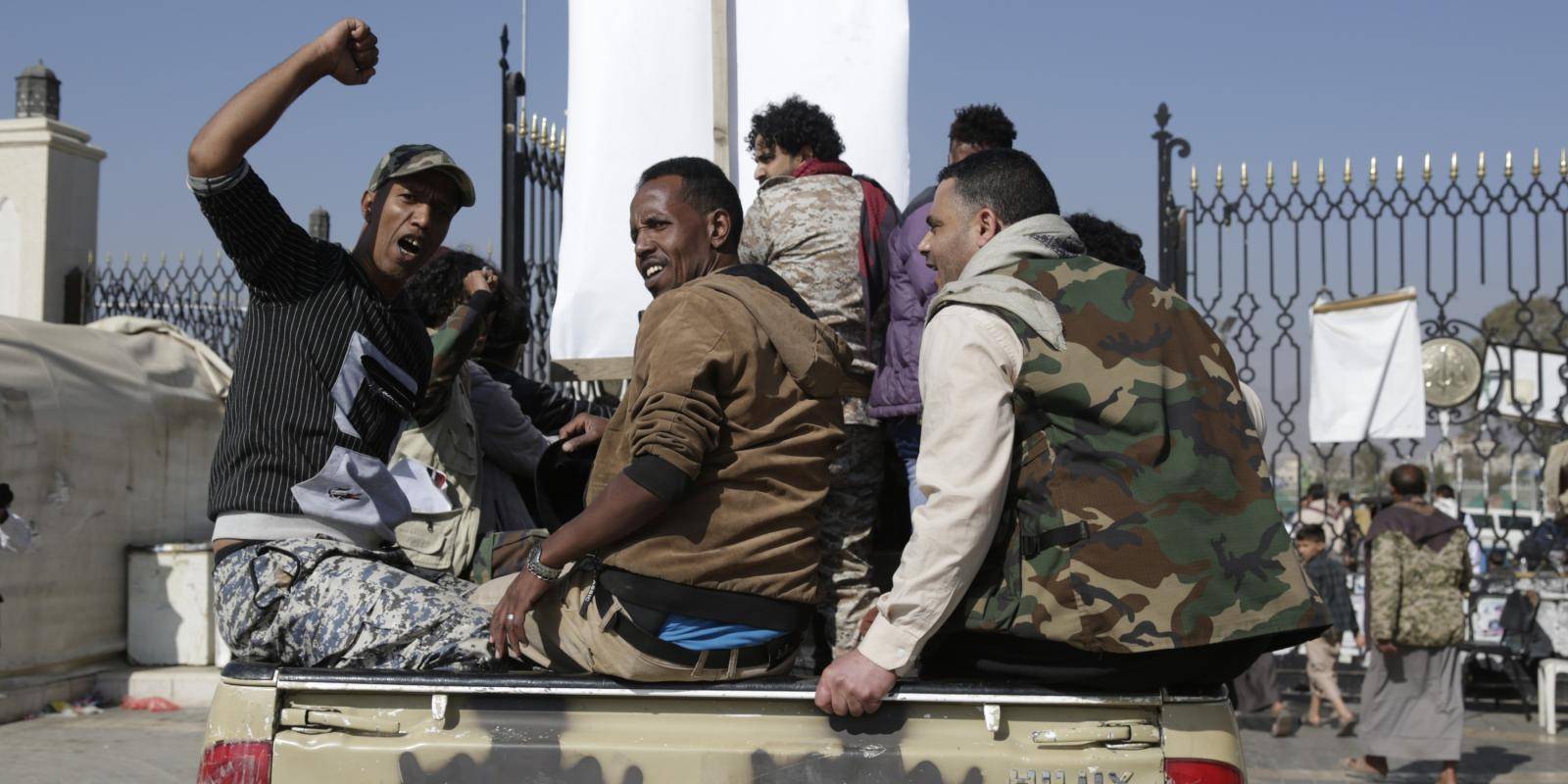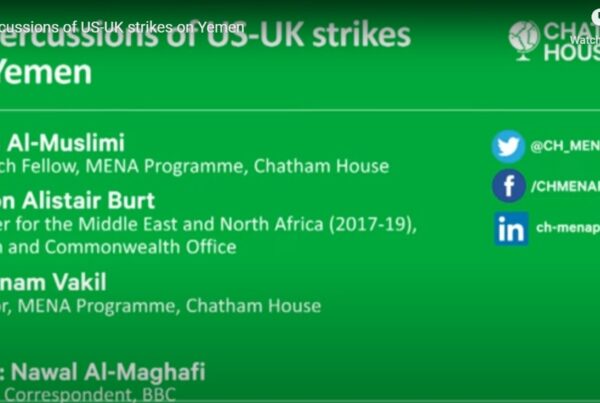The US redesignation of the Houthis as Specially Designated Global Terrorists (SDGT) represents continuing inconsistency in its policy towards Yemen – or rather the complete absence of a policy.
During its first weeks in office the Biden administration chose to revoke Trump’s decision to add the Houthis to a similar list. Now the US has rebranded them with the terrorist designation, repeating the same old ignorant mistakes, with apparently no ability to learn from even recent history.
The main difference between Trump’s designation and Biden’s is that the restrictions of the new SDGT categorization can be more easily undone in the event of a de-escalation in hostilities. Humanitarian waivers are also easier to get.
In addition, the Biden administration has given the Houthis 30 days’ notice before the designation is applied – a chance to back off in the Red Sea and give diplomacy a chance.
But the new designation will not persuade the Houthis to think again. And it adds to the already zero-sum ego game they are playing with the US. It will also hinder humanitarian operations in Yemen and further deteriorate US standing in the Middle East.
A history of failure
President Trump designated the Houthis as a Foreign Terrorist Organization (FTO) and Specially Designated Global Terrorists in January 2021, as one of his last acts in office.
At the time aid workers, peace workers, and many others including the Democratic Party correctly called the move a mistake, likely to worsen the humanitarian situation in Yemen, yet unlikely to further US policy.
The Biden administration then failed to make the best out of the bad situation Trump had created. Biden could have chosen to leverage the lifting of the designation in order to win concessions from the Houthis.
Instead, he unconditionally and immediately unlisted them; allowing them to boast of a major victory over the US, achieved without firing a shot. Thus continued a tradition in US and British politics where foreign affairs decisions are made based on domestic and electoral calculations.
The new designation, taken as the US election season heats up, is another poorly timed move. Sanctioning the Houthis now makes them look as if they are being punished for standing with Palestine – not for assaulting international trade, or for the many horrifying crimes they have perpetrated on the Yemeni people since their violent coup in 2014.
The likely effects
The new designation will not change the Houthis behavior or deter them. What it will achieve is to further eat away at regional perceptions of the US as security guarantor in the Middle East – a position that has been badly mauled in recent years by the withdrawal from Afghanistan, and its near unconditional support for Israel in the Gaza war.
It will also complicate the role of the UN envoy to Yemen, who already had one of toughest jobs in the world. Plans to resume peace talks among parties in Yemen’s long civil war are indefinitely postponed. UN agencies’ efforts to deliver humanitarian aid will also be frustrated.
Regional efforts to facilitate peace will be thrown into doubt. As part of a peace deal, Saudi Arabia had pledged to pay public sector salaries in areas of Yemen under Houthi control. This new designation will presumably make that impossible.
The UN sponsored truce in Yemen includes an existing agreement to operate flights between Jordan and Houthi-controlled airports: this already fragile truce could be threatened too.
Additionally, the terrorist designation will complicate the already difficult relationship of banks within Houthi-controlled areas, harm the Yemeni currency, and negatively impact millions of Yemenis who depend on remittances from relatives in the diaspora.
It is unclear whether a move like this can do anything for Biden’s domestic political needs. Many young US voters are already alienated by moves they see as part of US alignment with Israel in the Gaza war. Yemeni voters in America are few but do mobilize on issues: they last did so over Trump’s Muslim ban, voting for Biden.
The Red Sea
The Houthis probably deserve to be called terrorists. But Biden’s move is unlikely to make them behave better or facilitate peace in Yemen.
Houthi attacks will continue in the Red Sea, as they have despite recent air strikes.
Fundamentally, terrorist designations will always be a poor tool for the US when applied to the Houthis and at this time.
The US needs to stop acting unilaterally in Yemen and work through UN mandates, mechanisms, and resolutions. It should also pressure regional allies who are suffering from the attacks on the Red Sea, such as Oman, Egypt, Jordan, and Saudi Arabia, to use their leverage with the Houthis. That might have provided a more efficient approach, or at least, if diplomacy failed, created a more coherent rationale for alternative actions.
Most of all, to further peace, the US ought to look to the war in Gaza. For many in the region, Gaza is what lends the Houthi acts legitimacy. Gaza is what drains support for US policy. Most of all, Gaza is the conflict that Houthis and others like them have wanted for years.
Only driving forward peace in Gaza will bring the Houthis back to the negotiating table – and perhaps salvage something of US standing in the region.
This article was published by Chatham House








